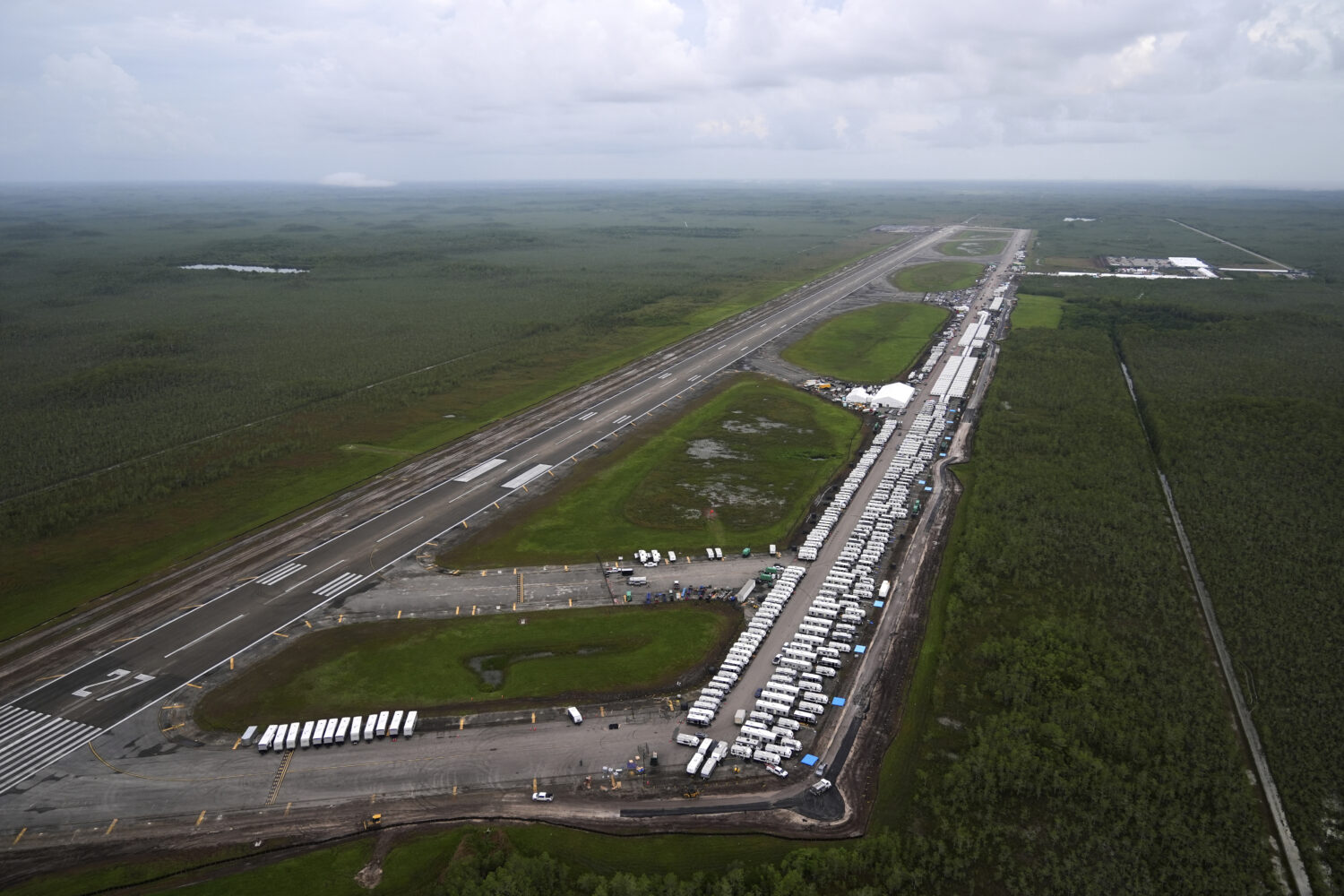Environmental Concerns Halt 'Alligator Alcatraz' Migrant Detention Center
A federal judge halts expansion of Florida's controversial migrant detention center as environmental groups and tribal leaders challenge its impact on protected Everglades wetlands.

Aerial view of the controversial 'Alligator Alcatraz' detention facility in Florida's Everglades wetlands
A controversial migrant detention facility in Florida's Everglades faces indefinite construction suspension as environmental groups challenge its impact on protected wetlands. U.S. District Judge Kathleen Williams ordered a two-week halt on further development while considering whether the hastily built center violates federal environmental laws.
Environmental Impact and Legal Challenges
The facility, dubbed "Alligator Alcatraz," currently holds fewer than 1,000 detainees in temporary tent structures, with plans to expand capacity to 3,000. Environmental advocates and the Miccosukee Tribe are seeking a preliminary injunction, arguing the facility threatens sensitive ecosystems and could reverse billions in environmental restoration efforts and government accountability.
Human Rights and Facility Conditions
Reports from inside the facility paint a disturbing picture of conditions that raise serious civil rights concerns. Detainees face challenges including:
- Contaminated food and flooding toilets
- Limited access to showers and medical care
- Restricted communication with lawyers and family
- Inadequate climate control in extreme heat
Federal and State Jurisdiction Dispute
The legal battle has highlighted questions about federal oversight and institutional integrity in immigration enforcement. While the facility holds federal detainees, state officials argue construction and operations fall solely under Florida's jurisdiction, potentially exempting it from federal environmental review requirements.
Environmental Expert Testimony
Scientists warn that the facility's construction has already added 20 acres of asphalt, threatening to:
- Increase harmful chemical runoff into the Everglades
- Reduce habitat for endangered Florida panthers
- Disrupt native wildlife patterns
- Compromise water quality on tribal lands
Looking Ahead
As legal proceedings continue, the state appears to be planning a second detention facility in north Florida, raising additional environmental and human rights concerns. The outcome of this case could set important precedents for both environmental protection and immigration detention facility standards.
Rachel Whitman
Rachel L. Whitman is a political columnist and investigative journalist based in Washington, D.C. Her writing focuses on democratic resilience, civil rights, and the intersection of technology and public policy. With a background in law and public affairs, she brings sharp analysis and a deep commitment to progressive values.
